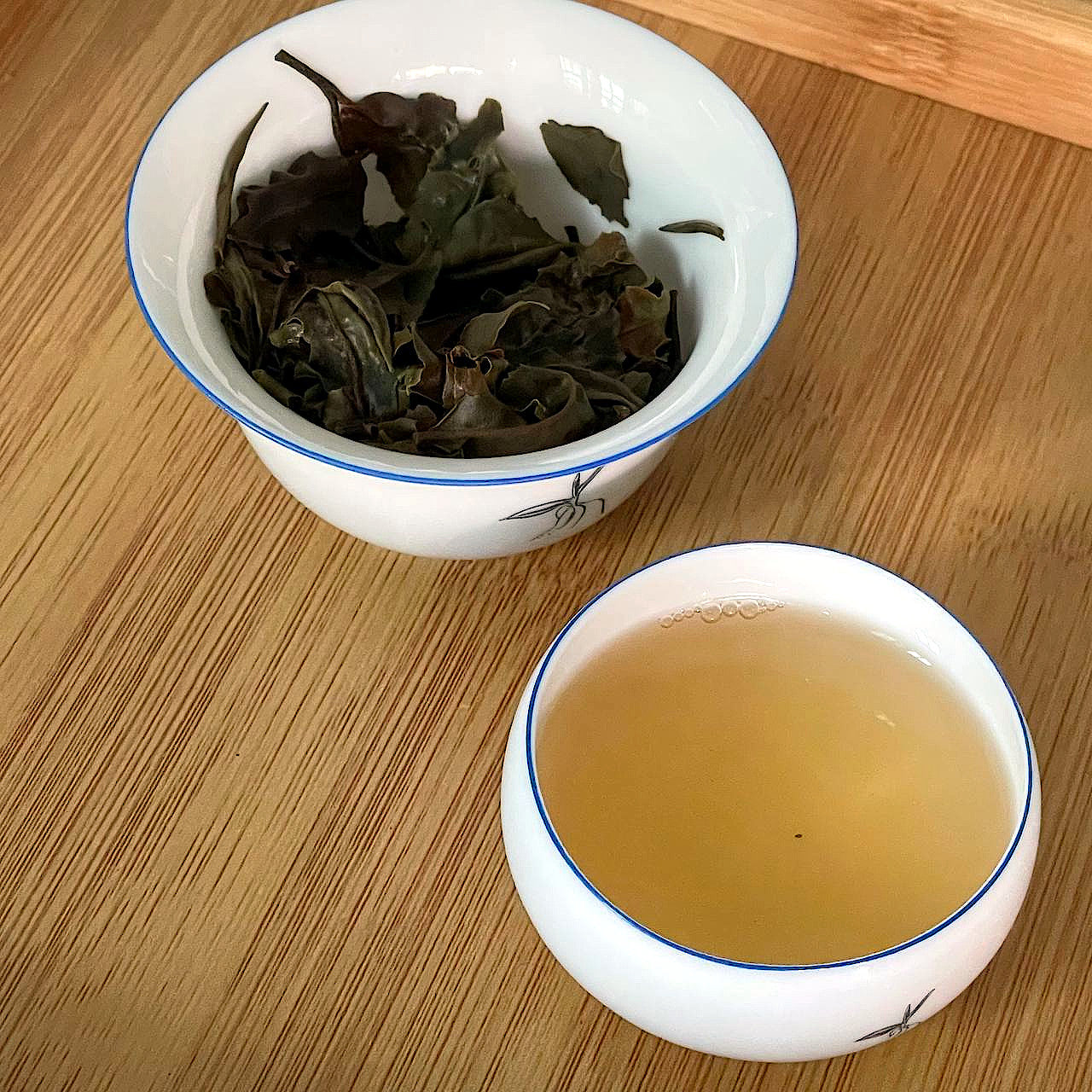Yuchi Assamica #8 White Tea
Yuchi Assamica #8 White Tea
鱼池阿萨姆白茶
Sweet, Grassy, Melonskin
Couldn't load pickup availability
Share





White tea is a relatively new and upcoming type of tea that hasn't been around for too long. It's process is simple, just a withering and drying step, so as to procure one of the gems of the tea world. Nuanced and light in taste yet complex and rich in mouthfeel and aftertaste, white teas can really be a treat. What is even more of a treat however is white teas made from Taiwan. You see, white teas are typically made in Fuding, in Fujian province, China. However, Taiwanese white teas are slowly on the rise, with many producers catching onto the trend that has grappled Chinese tea culture for the past few decades.
This Taiwanese white tea that we have here is made in Yuchi from The Assamica #8 varietal. Not only is Taiwanese white tea rare, but white tea made from this cultivar is even rarer. It has a sweet profile with a characteristic Taiwanese white tea melon-skin taste, with these notes pronounced across many sips. It is smooth and slightly oily in texture, easy to drink yet bringing adequate complexity to make for an interesting tea session. This white tea is also 4 years old, adding more layers to its already complex and nuanced profile. Try this white tea for yourself today!
Tea Information
- Harvest Date: December 2021
- Origin: Houdong, Yuchi Township, Nantou County, Taiwan (台灣,南投縣,魚池鄉,猴洞)
- Varietal: Assamica TRES #8 (阿萨姆)
- Elevation: 620m
- Source: Direct from Farmer
- Organic?: No
Map
Brewing Guide
Gongfu Brewing:
- Leaf-to-water ratio: 5g/100ml
- Temperature: 95°C/203°F
- Steeping time: 30s, +15s for each subsequent steep
Western Brewing:
- Leaf-to-water ratio: 5g/400ml
- Temperature: 95°C/203°F
- Steeping time: 3m, +1m for each subsequent steep
Grandpa Style:
- Leaf-to-water ratio: 5g/300ml
- Temperature: 95°C/203°F
- Steeping time: 2m30s, top up to taste
Don't know anything about these brewing styles? Fret not! Read our "How to Brew Chinese Tea" article here!
* Ultimately, experiment with the different parameters to find what works for you. If you think it's too bitter, reduce the temperature. If it's too strong, reduce the number of leaves used. This is just a guide with rough parameters to get you started.
Media













